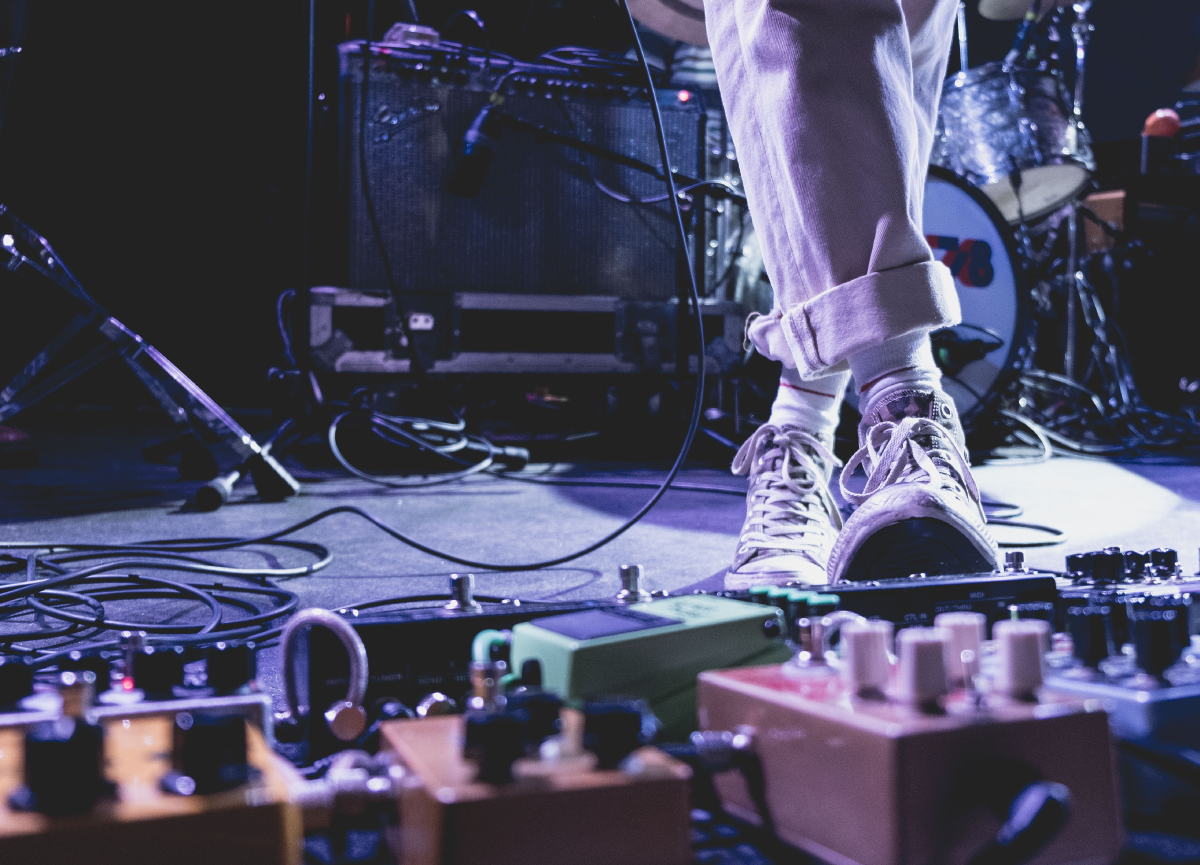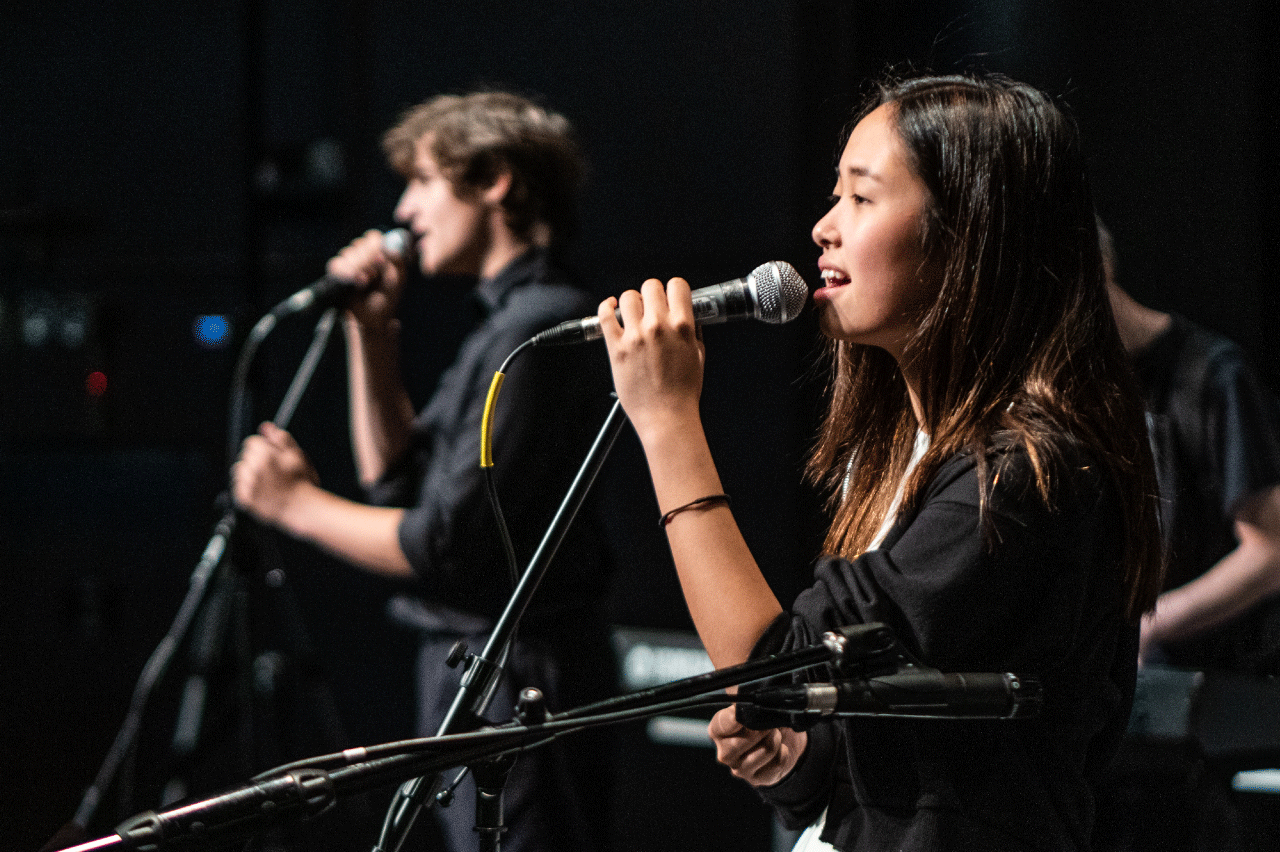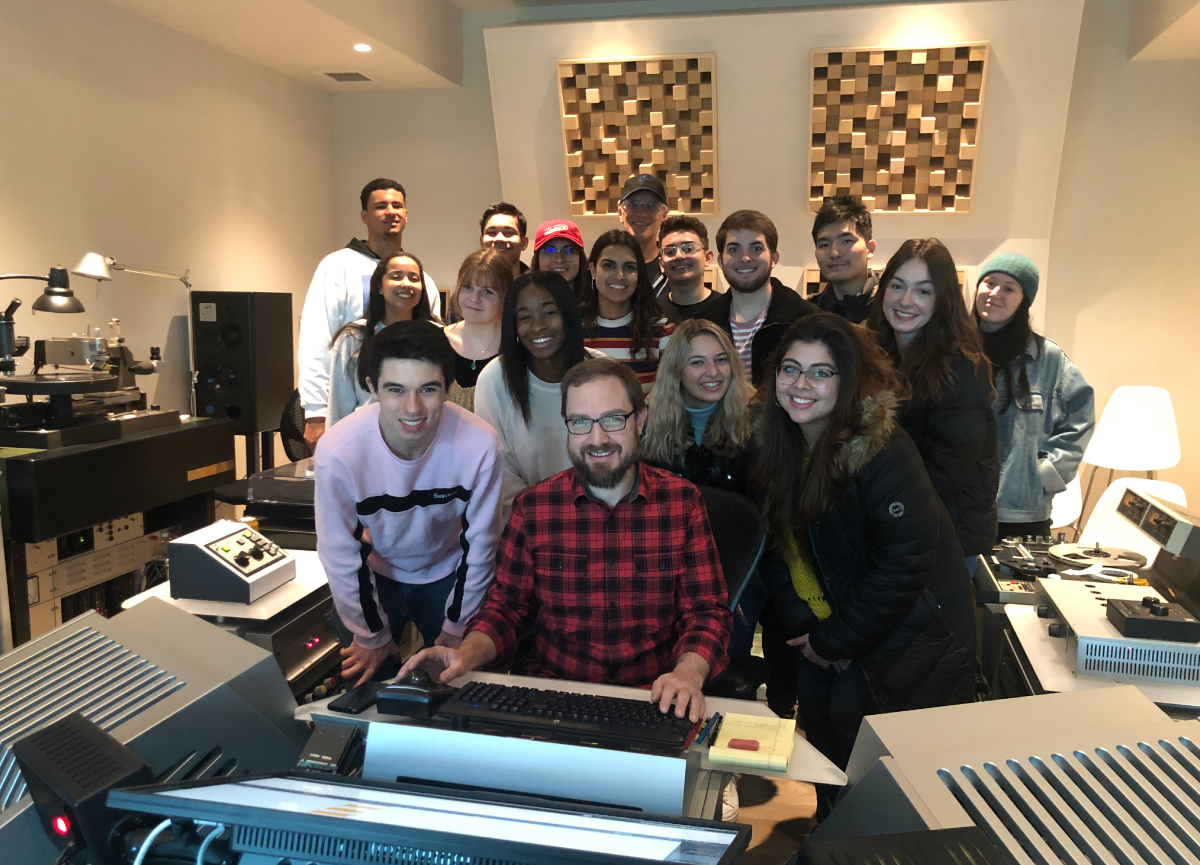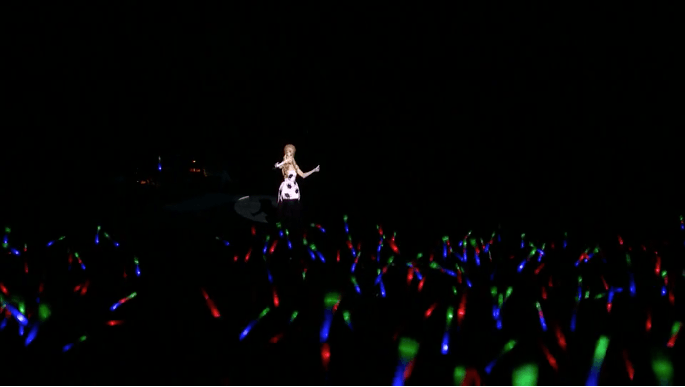Published August 18, 2022
Live Onstage, It’s the Steinhardt Composers’ Collective!

At NYU, there’s never a shortage of things to do. With over 300 student-run clubs to choose from, you can learn the subtleties of cheese tasting, hone your mah-jongg skills, or celebrate all things Polish culture. But the NYU Composers’ Collective (CC) at the Steinhardt School of Culture, Education, and Human Development does things a little differently. Here, Steinhardt student composers have the opportunity to experience their original work performed for a live concert audience. What’s more, club members organize each performance from beginning to end. “Seeing your work performed is the coolest thing in the world!” exclaims Jackie Andresen, the club’s copresident. She’s a Music Theory and Composition major concentrating in screen scoring. “It’s a magical experience, and you learn so much. There’s just nothing like hearing your own music played live.”

Planning a Performance That Sings
CC welcomes the contributions of all aspiring composers and performers but focuses on promoting the Steinhardt community. Every week, the board meets to plan events and iron out performance logistics. Prior to each concert, they send out score calls to members of the Music Theory and Composition program, which includes tracks for concert composition, songwriting, and screen scoring. Then, interested composers can submit pieces in the form of scores, audio files, or demos.
“When I got to NYU, I thought it was really interesting that students were putting on concerts for the other students,” says Carmen Lustik. She’s a recent Music Theory and Composition alumnus who served as CC’s secretary. “It was a really interactive two-way street for the student body and the Steinhardt composing community. I wanted to help facilitate those events and those experiences to make sure everyone had the opportunity to have their pieces performed and have ears to listen to their music. I didn’t want it to feel exclusive.”
Accordingly, CC has reached beyond NYU to a broader virtual audience. Some performances of original compositions are even on YouTube. For instance, below you’ll find Duo Rosa performing “Two Movements for Two Violas” by Noah Horowitz. The pair is made up of violists Maxim Estevez-Curtis and Isadora Banyai.
Two Movements for Two Violas
A Concert for Every Instrument
Specific concerts range from solo shows to full orchestral performances, with offerings tailored to composer interests. For example, with so many NYU artists interested in screen scoring, CC’s UnSilent Film Festival has become one of their most popular events. An ensemble performs club members’ original scores to accompany silent films that are projected behind them. Another bonus? You’re sure to meet a professor or two at each performance. “They’re very supportive. They just want to see students outside of the classroom—see us let our hair down with our music,” explains Carmen.
And thanks to the University’s plethora of programs, composers can constantly find inspiration in new places. “NYU has a really tiny classical music saxophone program,” offers Jackie. “I went to their concert in the fall, and I knew I had to write a piece for them. It was such a small program that many people didn’t even know we had it!” Carmen adds, “We also have NYU Steel, a steel pan band, at Steinhardt. Who just has that? There are so many hidden gems.”

Finding Your Voice
So how does one enter the world of music composition? For both Carmen and Jackie, it started with a flash of inspiration. “In my sophomore year of high school, I saw The Godfather. Something about the opening trumpet line and that score threw me. I thought, ‘This is a job. This is actually something you can do,’” recalls Jackie “After that, it was a deep dive into orchestration and concert composition. And I love it so much.”
“These concerts are an opportunity to say, ‘I have this idea out of my own head, this thing I’ve created. It’s a baby to me, it’s special to me, and I have an opportunity to let it come to life—to put forth the energy to have it be performed and be heard and just take the reins,’” concludes Carmen. “It’s a really beautiful feeling.”



